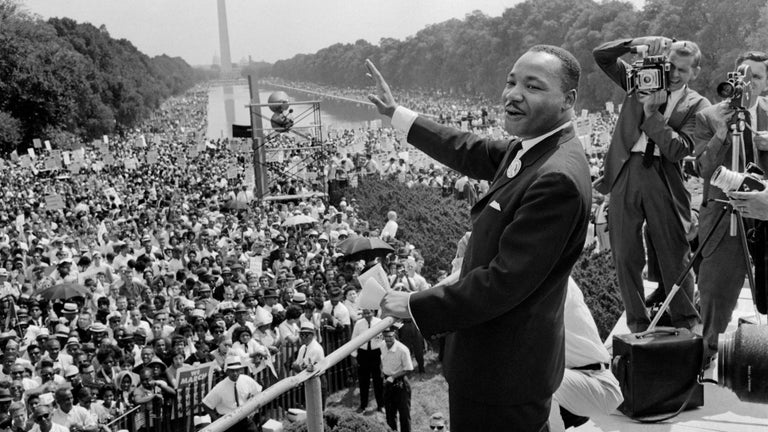zoomacademia.com – The 20th century was a period of profound social transformation marked by the rise of civil rights movements across the globe. These movements sought to challenge systemic discrimination, promote equality, and secure basic human rights for marginalized communities. From the struggle for racial equality in the United States to the anti-apartheid movement in South Africa, civil rights activists played pivotal roles in reshaping societies and inspiring future generations.
Civil Rights Movement in the United States
The American Civil Rights Movement, primarily active during the 1950s and 1960s, aimed to end racial segregation and discrimination against African Americans. Rooted in the legacies of slavery and Jim Crow laws, African Americans faced systemic oppression in education, employment, housing, and voting rights.
Key milestones of the movement include:
- Brown v. Board of Education (1954): The U.S. Supreme Court declared segregation in public schools unconstitutional, overturning the “separate but equal” doctrine.
- Montgomery Bus Boycott (1955–1956): Sparked by Rosa Parks’ arrest, this year-long boycott led to the desegregation of public buses.
- Civil Rights Act of 1964: Landmark legislation outlawing discrimination based on race, color, religion, sex, or national origin.
- Voting Rights Act of 1965: Aimed to dismantle barriers to voting, particularly for African Americans in the South.
Figures such as Martin Luther King Jr., Malcolm X, Rosa Parks, and many grassroots organizers were instrumental in this struggle. Tactics like nonviolent protests, sit-ins, and marches, including the iconic March on Washington in 1963, highlighted the movement’s commitment to justice.
Anti-Apartheid Movement in South Africa
In South Africa, the anti-apartheid movement sought to dismantle a system of institutionalized racial segregation and oppression that began in 1948. The apartheid regime enforced laws that disenfranchised the majority Black population and segregated every aspect of life.
Key events and achievements include:
- Sharpeville Massacre (1960): Police opened fire on peaceful protesters, killing 69 people and galvanizing global opposition to apartheid.
- Imprisonment of Nelson Mandela (1962): Mandela became a global symbol of resistance during his 27 years in prison.
- International Sanctions: Economic and cultural boycotts pressured the South African government to reform.
- End of Apartheid (1990–1994): Negotiations led by Mandela and President F.W. de Klerk resulted in democratic elections, with Mandela becoming South Africa’s first Black president in 1994.
The anti-apartheid struggle inspired solidarity movements worldwide, uniting activists in a shared quest for human dignity.
Women’s Rights Movements
The 20th century also saw significant advancements in women’s rights. The suffragette movement, which began in the late 19th century, culminated in women gaining the right to vote in many countries, including the United States (1920) and the United Kingdom (1928). Post-World War II feminism expanded to address issues like workplace discrimination, reproductive rights, and gender-based violence.
Key milestones include:
- Equal Pay Act (1963, U.S.): Mandated equal wages for men and women performing the same job.
- Second-Wave Feminism (1960s-1980s): Advocated for broader societal changes, such as reproductive rights and workplace equality.
- UN Convention on the Elimination of All Forms of Discrimination Against Women (1979): An international treaty promoting women’s rights.
Figures such as Betty Friedan, Simone de Beauvoir, and Gloria Steinem were pivotal in this movement.
Indian Independence Movement and Dalit Rights
In India, the fight for independence from British colonial rule (culminating in 1947) was paralleled by efforts to combat caste-based discrimination. Dalit leader B.R. Ambedkar worked to dismantle the rigid social hierarchy, advocating for the rights of “untouchables” and drafting India’s progressive constitution.
Key achievements:
- Abolition of “Untouchability” (1950): Enshrined in the Indian Constitution.
- Reservation Policies: Affirmative action for historically disadvantaged communities.
The Indian civil rights struggle inspired movements in other post-colonial nations.
Global Legacy and Impact
The civil rights movements of the 20th century left a lasting legacy, fostering a global culture of activism and awareness. They demonstrated the power of collective action and the necessity of confronting systemic injustice. Modern movements, such as Black Lives Matter, Me Too, and climate justice initiatives, draw inspiration from the strategies and resilience of 20th-century activists.
While significant progress has been made, the struggle for equality and human rights continues. The lessons of the past underscore the importance of persistence, solidarity, and the universal quest for justice.










